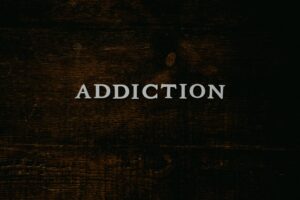General signs of addiction are lack of control or inability to stay away from a substance or behaviour. decreased socialization, like abandoning commitments or ignoring relationships. ignoring risk factors, like sharing needles despite potential consequences.
A person with an addiction does not have any control over what they are doing, using or taking because their brain chemistry changes as their addiction progress. Their addiction may have reached a point where it has become harmful. Addictions are not just limited to physical things that we consume, such as alcohol or drugs, but may include practically anything such as gambling, sex and food. Addiction can refer to either a substance dependence, such as drug addiction![]() , or
, or ![]() behavioural addiction
behavioural addiction![]() like gambling, sex or the internet.
like gambling, sex or the internet.
The term addiction is used to solely indicate psychoactive substances that cross the barrier between the body and the brain to temporarily alter the brain’s chemical balance. It would include tobacco, alcohol and some drugs. Nowadays, a significant amount of psychologists and healthcare professionals insist that psychological dependency, such as smartphones, sex, gambling, and work, should be considered addictions as well since they also cause feelings of shame, guilt, failure, despair, anxiety, hopelessness and humiliation.
When an individual becomes addicted to something, they start to become dependent on it and need to keep repeating the activities, taking the drug or drinking alcohol, despite the negative consequences these behaviours bring.

Some of the most common characteristics of addiction include:
1. The individual cannot stop taking the substance. …
2. Health problems do not stop their addiction. …
3. Giving up recreational and/or social activities. …
4. Keeping a steady supply. …
5. Saving stashes. …
6. Risky behaviour. …
7. Excessive consumption. …
8. Dealing with issues.
9. Obsession
10. Secrecy and denial
11. Having troubles with the law
12. Financial problems
13. Relationship issues
Physical Signs of Addiction
● Over-active or under-active (depending on the drug)
● Repetitive speech patterns
● Dilated pupils, red eyes
● Excessive sniffing and runny nose (not attributable to a cold)
● Looking pale or undernourished
● Clothes do not fit the same
● Weight loss
● Change in eating habits
● Unusual odours or body odours due to lack of personal hygiene
Behavioural Signs of Addiction
● Missing work/school
● Work/school problems
● Missing important engagements
● Isolating/secretive about activities
● Disrupted sleep patterns
● Legal problems
● Relationship/marital problems
● Financial problems (e.g. always needing money)
● Conversations dominated by using or drug/alcohol-related topics
Emotional Signs of Addiction
● Irritability/Argumentative
● Defensiveness
● Inability to deal with stress
● Loss of interest in activities/people that used to be part of their lives
● Obnoxious
● Silly
● Confused easily
● Denial
● Rationalizing – Offering alibis, excuses, justifications, or other explanations for their using behaviour
● Minimization –
Admitting superficially to the problem but not admitting to the seriousness or full scope of the behaviour or consequences
● Blaming – Placing the blame for the behaviour on someone else or some event
● Diversion – Changing the subject to avoid discussing the topic

